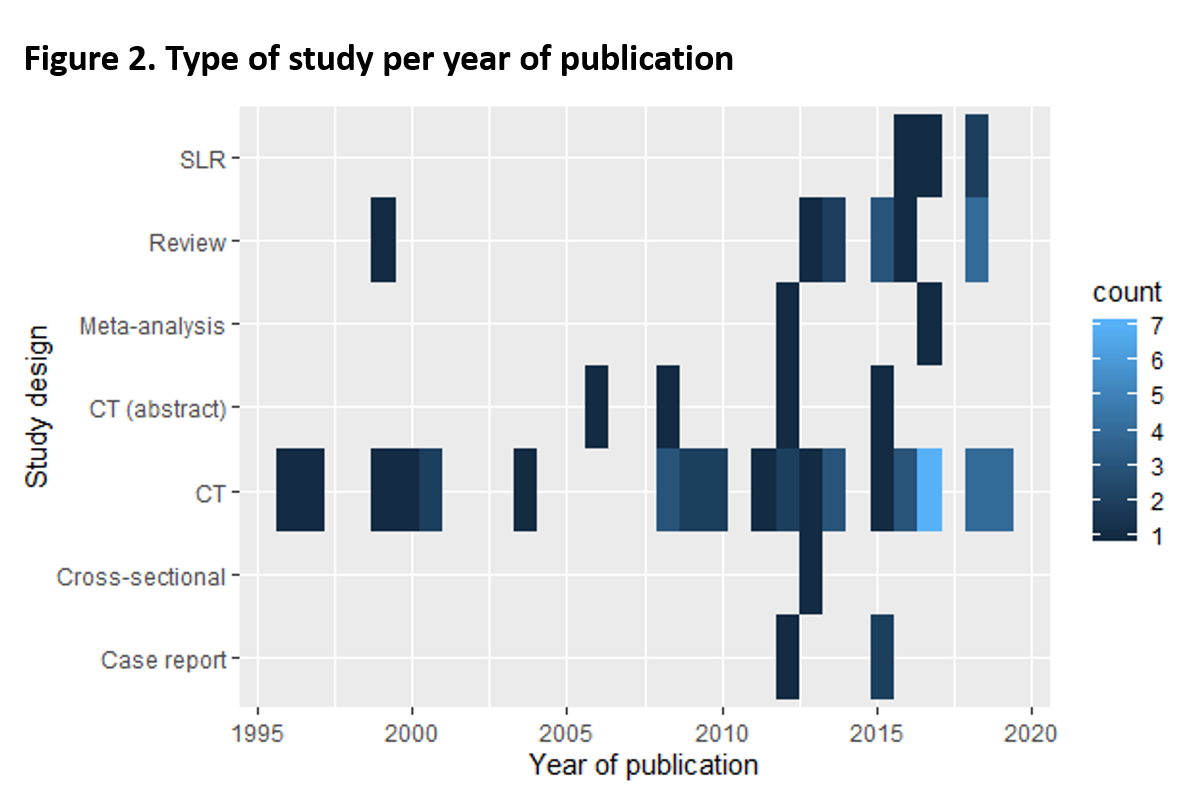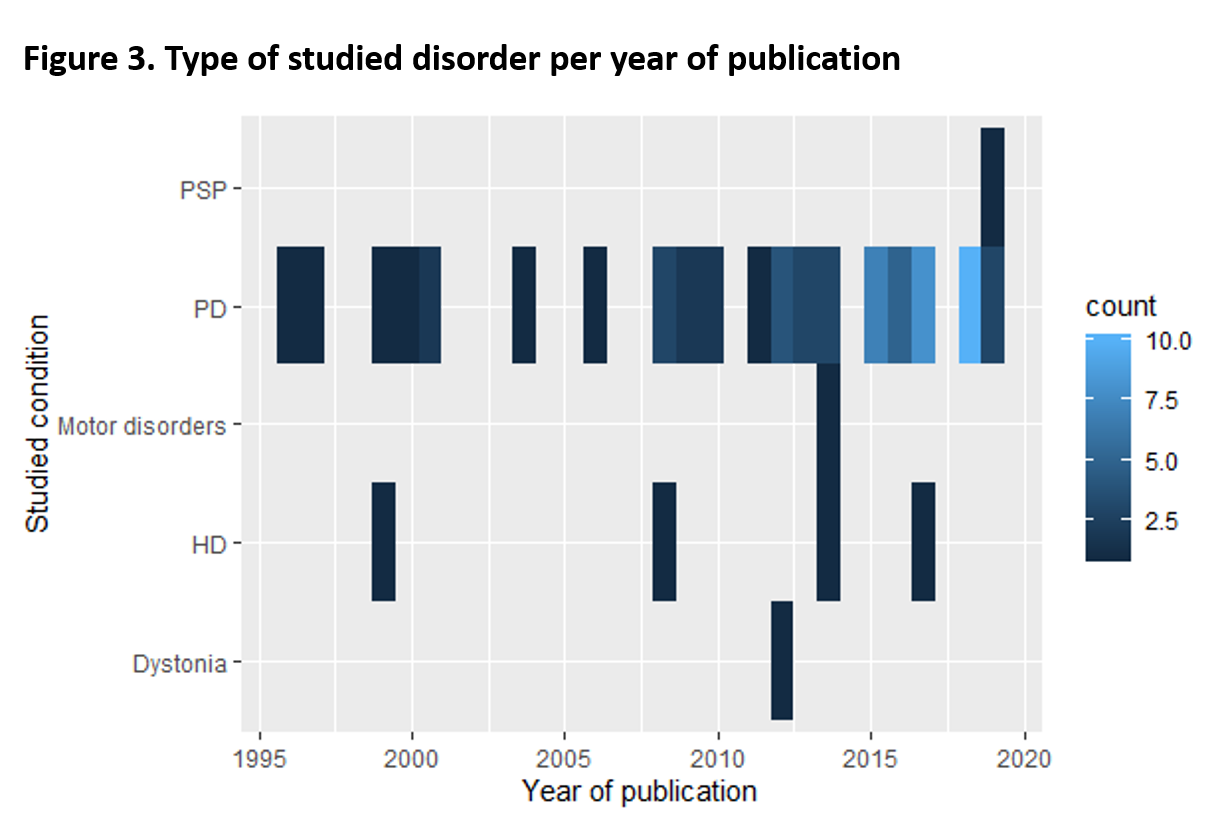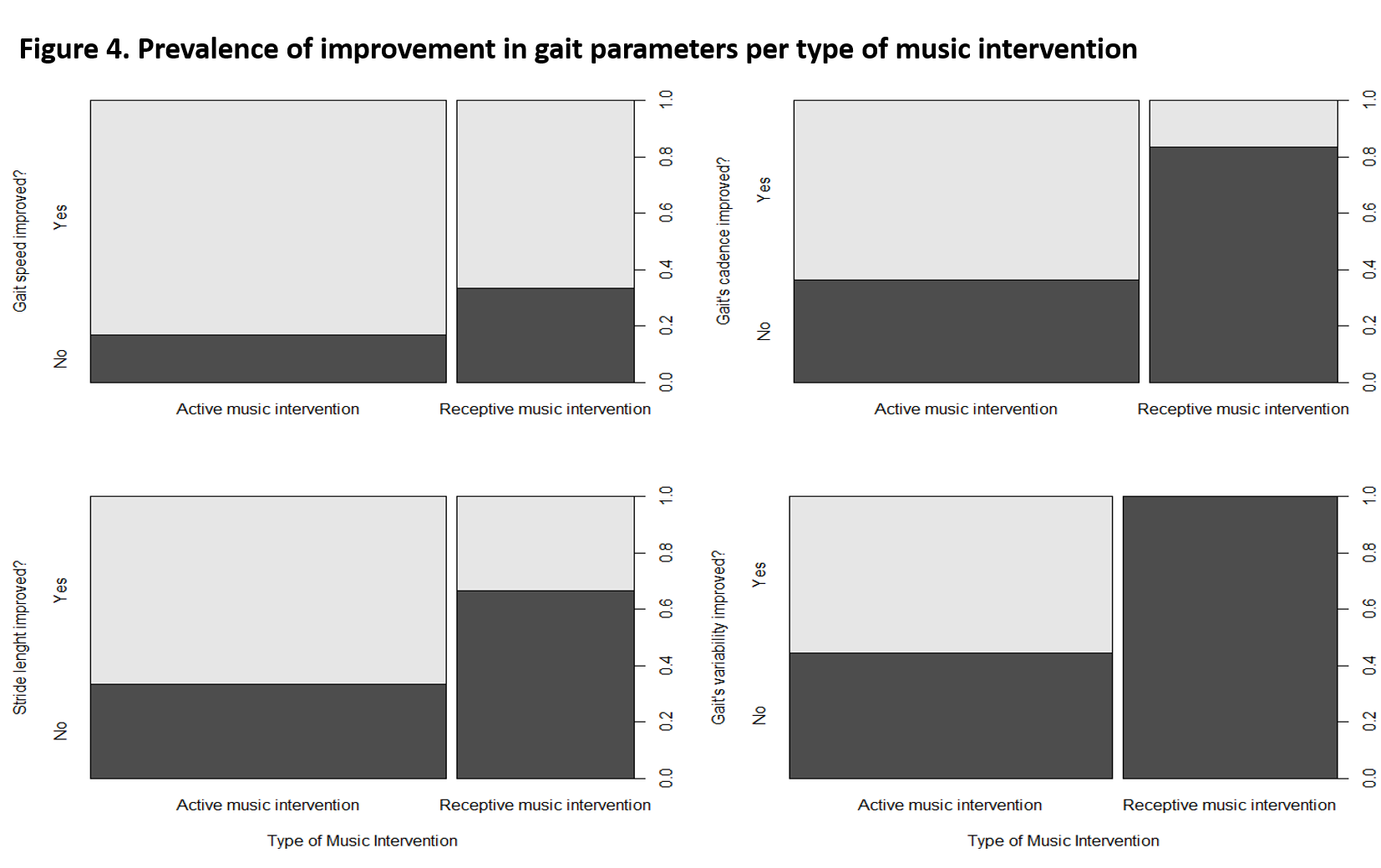Objective: To conduct a systematic review of the current evidence regarding the use of music-based interventions for the management of patients with movement disorders.
Background: Current pharmacologic treatment for patients with movement disorders remains largely symptomatic, leaving unmet needs for motor and non-motor symptoms associated with increased morbidity and mortality. Non-pharmacologic interventions such as musically cued stimulation in Parkinson’s disease (PD) have been studied and can improve motor symptoms, adherence, and quality of life.
Method: Current pharmacologic treatment for patients with movement disorders remains largely symptomatic, leaving unmet needs for motor and non-motor symptoms associated with increased morbidity and mortality. Non-pharmacologic interventions such as musically cued stimulation in Parkinson’s disease (PD) have been studied and can improve motor symptoms, adherence, and quality of life.
Results: 66 articles published between 1997 and 2019 were included (Figure 1 and 2). 61% of articles were clinical trials. Of the clinical trials, 88% evaluated patients with PD, followed by Huntington’s disease (8%) (Figure 3). The most common primary outcome in PD studies was gait (43%) (Figure 4), followed by speech and voice parameters (17%), overall motor function (motor symptoms nonrelated to gait) (14%), and rhythmic skills (e.g. beat perception or performance) (12%). Other outcomes included cognition, disease severity, falls, perception of music-based interventions, and others. For the non-PD studies, the primary outcomes included gait, cognition, symptom relief and social cognition.
Conclusion: Music-based interventions are being studied in patients with movement disorders, particularly for the treatment of motor symptoms in cognitively intact PD. Music-based interventions improve gait disturbances in PD. Further research of music-based interventions for the treatment of movement disorders other than PD and non-motor symptoms are needed.
To cite this abstract in AMA style:
S. Saade-Lemus, J. Martin-Saavedra, A. Deik. Music-based interventions for the management of movement disorders: a systematic literature review [abstract]. Mov Disord. 2020; 35 (suppl 1). https://www.mdsabstracts.org/abstract/music-based-interventions-for-the-management-of-movement-disorders-a-systematic-literature-review/. Accessed December 6, 2025.« Back to MDS Virtual Congress 2020
MDS Abstracts - https://www.mdsabstracts.org/abstract/music-based-interventions-for-the-management-of-movement-disorders-a-systematic-literature-review/




